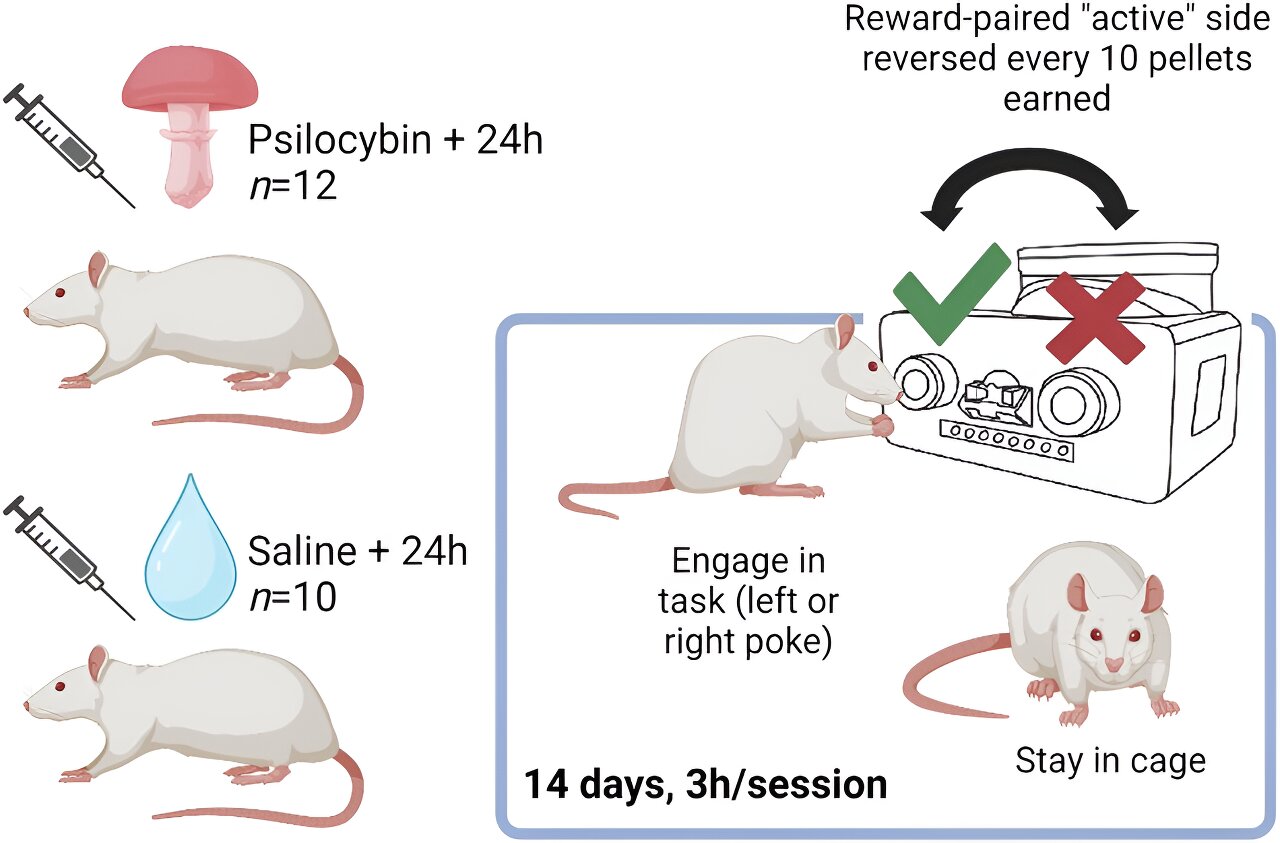
Monash University researchers have made a breakthrough in the study of psychedelics to treat disorders including major depression, demonstrating that rats given psilocybin exhibit increased optimism over time.
Psilocybin is a psychedelic compound found in magic mushrooms that has shown promise as a novel treatment for depression. However, the information processing mechanisms affected by psilocybin are not well understood.
Now, a cross-disciplinary team at Monash University has used computational modeling to demonstrate that rats given psilocybin display long-lasting, increased optimistic behavior to perform reward-based tasks.
The findings, published in Translational Psychiatry, suggest psilocybin may be helpful for addressing the core symptoms of major depression and other conditions characterized by reduced engagement and withdrawal.
Monash Ph.D. candidate Elizabeth (Beth) Fisher led the study, working with Professor Jakob Hohwy from the Monash Center for Consciousness and Contemplative Studies (M3CS) and Dr. Claire Foldi from the Monash Biomedicine Discovery Institute.
Professor Hohwy says the results are a promising step toward explaining the mechanisms of how psychedelics may work to change the brain and increase engagement after treatment. “Our team found that rats given psilocybin were more motivated to explore their environment and perform reward-based tasks.
“These exciting results show the mechanisms of how psilocybin may work to increase optimism in an animal model, which we hope may translate to humans as well.”
Fisher said that the study should motivate confirmation of these effects in human studies, adding, “Insights into the mechanisms of psilocybin allow us to unpack who may benefit from psychedelic therapies as well as who these treatments may not be beneficial for.
“With many people around the world affected by depression, our ultimate goal is to help build understanding of how psilocybin might be used to treat core symptoms people experience, such as diminished optimism, apathy and withdrawal from the world around them.”
More information:
Elizabeth L. Fisher et al, Psilocybin increases optimistic engagement over time: computational modelling of behaviour in rats, Translational Psychiatry (2024). DOI: 10.1038/s41398-024-03103-7
Citation:
Psilocybin may lead to increased optimism, rat study suggests (2024, October 8)
retrieved 8 October 2024
from https://medicalxpress.com/news/2024-10-psilocybin-optimism-rat.html
This document is subject to copyright. Apart from any fair dealing for the purpose of private study or research, no
part may be reproduced without the written permission. The content is provided for information purposes only.

